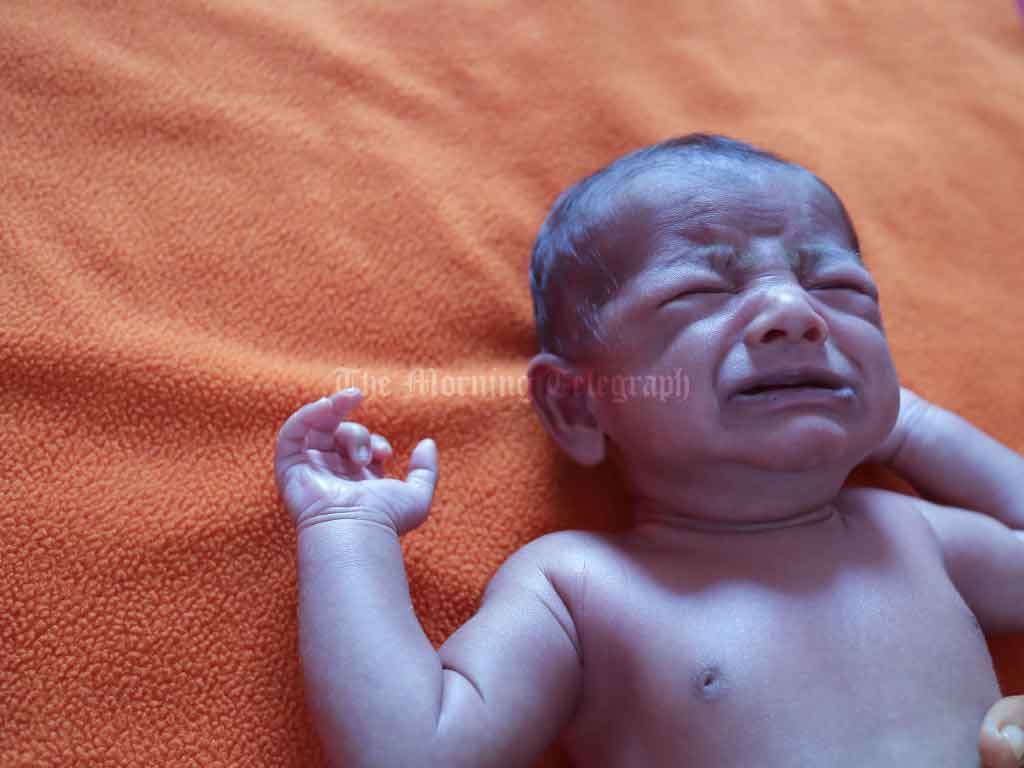
For the first time in Sri Lanka, a baby has been diagnosed with Congenital Methemoglobinemia, a rare genetic disorder that causes the body to turn completely blue. The condition was identified at the Anuradhapura Hospital by Dr. M.R.S.U.C. Ranawaka, a specialist at the hospital’s Neonatal Unit.
Congenital Methemoglobinemia is a hereditary condition where the blood’s ability to carry oxygen is impaired, leading to a lack of oxygen in the body’s tissues. This results in a distinct bluish discoloration of the skin, particularly noticeable in the lips and extremities.
The baby, born eight months ago, was diagnosed after blood samples showed abnormal levels of methemoglobin, a form of hemoglobin that is unable to effectively carry oxygen. The test results revealed that the blood components of the baby were in the range of 3 to 24 percent, confirming the condition.
Genetic testing was carried out to confirm the diagnosis, and the blood samples were sent to Germany, as Sri Lanka lacks the necessary facilities for this specific testing. The test results confirmed the diagnosis of Congenital Methemoglobinemia, a condition that occurs in approximately one in every 100,000 children worldwide.
The baby, who had been struggling with oxygen deficiency, was treated with supplemental oxygen for three days, which helped stabilize their condition. The baby was initially kept in the hospital’s intensive care unit and has since shown significant improvement.
Dr. Ranawaka explained that this condition is typically inherited through consanguineous (close kin) marriages, but in this case, the baby’s parents are not related. The discovery of this case in Sri Lanka is significant, as the condition had never been reported in the country before.
The diagnosis was overseen by Professor Vajira Disanayake of the Colombo Specialist Medical Unit, who contributed to the detailed testing and confirmation process. The medical community is now closely monitoring the baby’s progress, as treatment options for this rare disease are limited, but with appropriate care, children with the condition can lead healthy lives.




